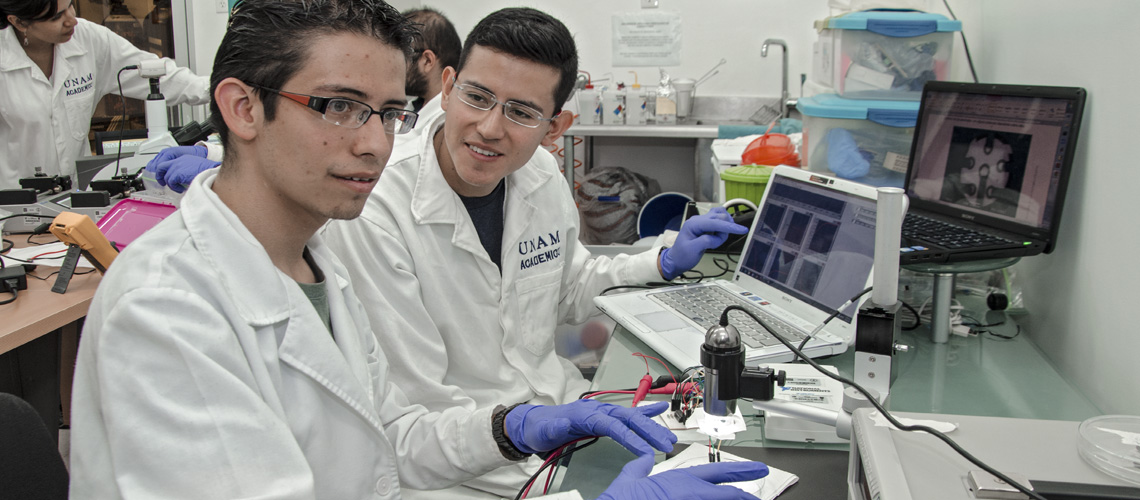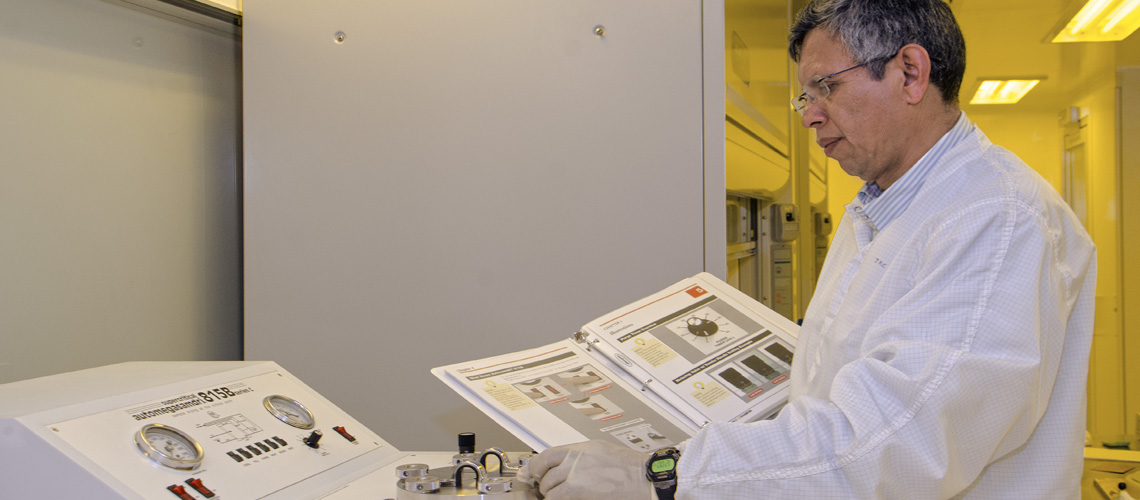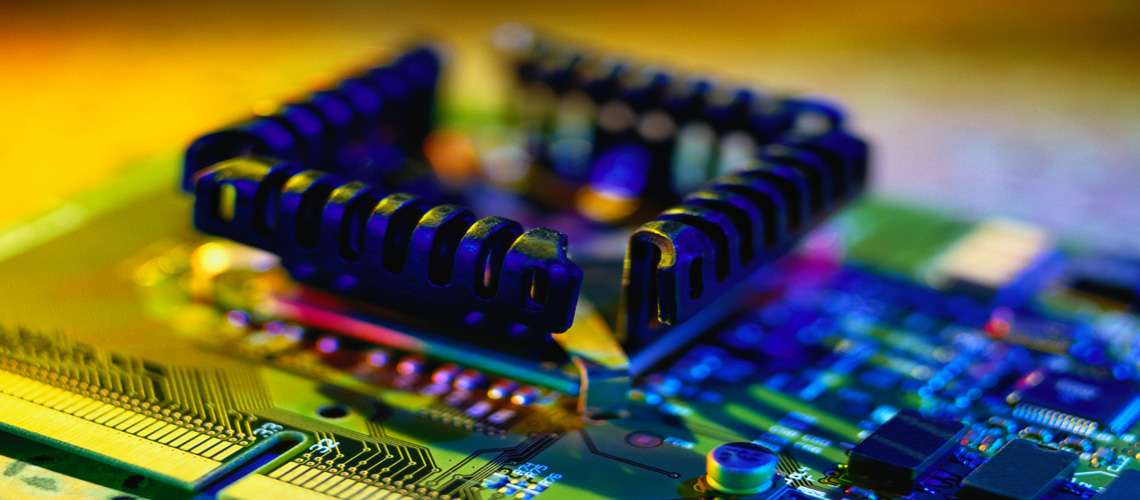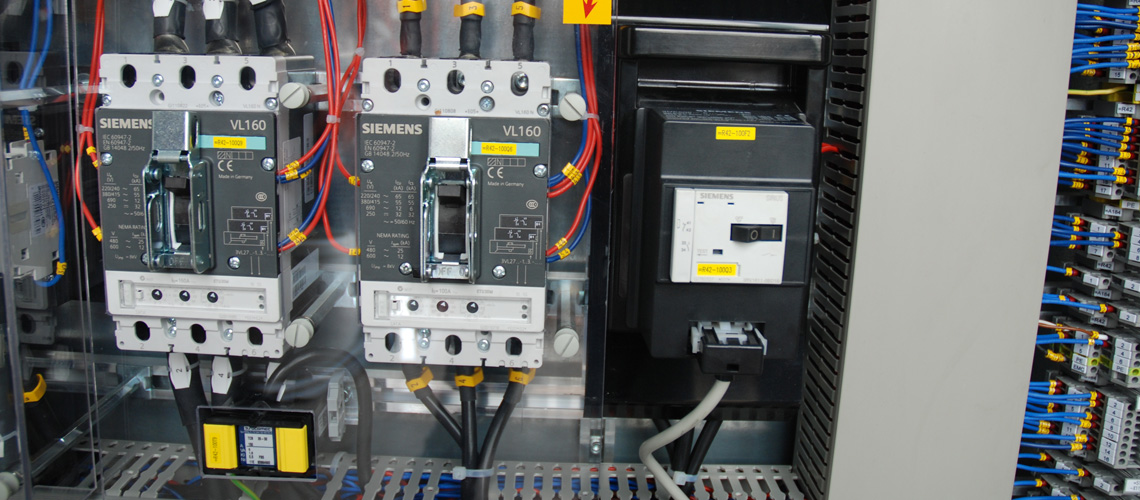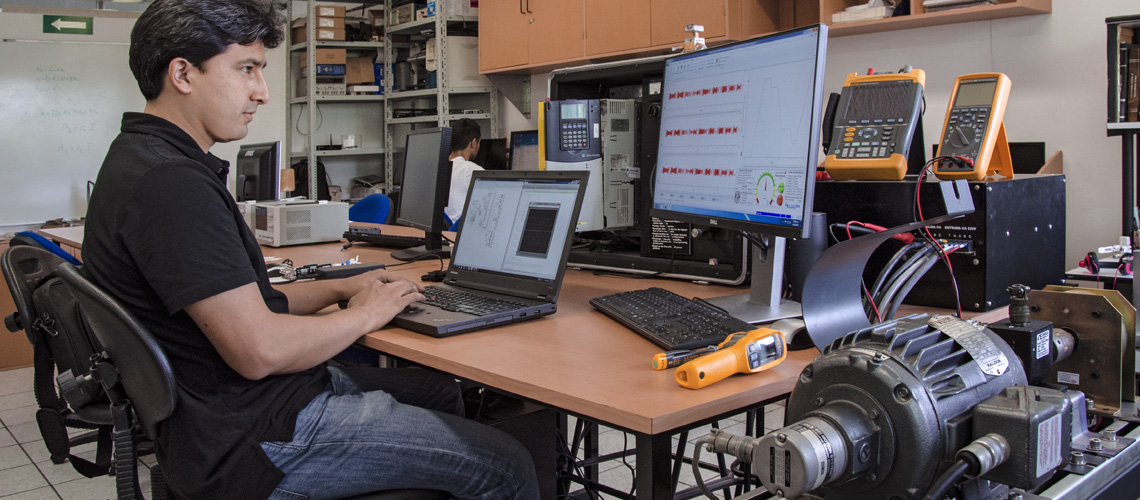The objective of this curricula is to train professionals who use the Physical, Chemical and Mathematical Sciences as well as Engineering, Economics, Computing and Administration techniques to transform nature through mechanical, electrical and electronic devices for the benefit of society and to optimize the integration and operation of the productive systems formed by men, machines and inputs. Thus, its professional activity is not limited to the design and manufacture of purely industrial components, but also, it provides essential elements in daily life to achieve the welfare of the society to which it is due.
The student interested in obtaining a degree in Electrical Electronic Engineering, in the Faculty of Engineering at UNAM, must be graduated from the National Preparatory School, College of Sciences and Humanities or other programs of Higher Preparatory Education. It is desirable that you have studied the area of Physical-Mathematical Sciences or the set of subjects related to these fields of knowledge in the College of Sciences and Humanities, or in other curricula of Preparatory Education. In all cases, the desirable profile includes the following knowledge, skills and attitudes.
The student needs to have mathematical knowledge in algebra, analytical geometry and differential and integral calculus of functions of one variable; he/she must also have knowledge of physics, particularly regarding topics related to classical mechanics, as well as general knowledge of chemistry and computing. It is also desirable that you have knowledge of English, at least at the level of understanding texts. As to the skills and attitudes, it is important that you have a willingness to work in a team, ability to analyze and synthesize, and adapt to new situations as well as a creative spirit.
Particularly for the degree in Electrical Electronic Engineering, the student should show great interest in the design and integration of systems that include electronic devices that are applied in electronics, microelectronics, communications, biotechnology, robotics, automation, computation and electronic instrumentation; together with the interest in the generation, transmission, distribution and use of electric energy in its various forms, as well as the different alternative forms of electric power generation.
The graduates of the Faculty of Engineering must possess: capacities for innovation, potential to contribute to the creation of technologies and entrepreneurial attitude, with social sensitivity and professional ethics. Must have potential and vocation to become a factor of change.
SpecificGraduates of the degree in Electronic Electrical Engineering will have a broad-spectrum training that will allow them to participate successfully in the different areas that make up the electric and electronics area, and adapt to changes in technologies in this field.
They will have clear ideas about mathematical modeling of physical phenomena and optimization; will be open to both continuous and interdisciplinary learning. They must have solid knowledge of their own language and of another one, preferably English, with oral and written communication skills.
The profile of the graduate of Electrical Electronic Engineering of the Faculty of Engineering at UNAM can be qualified according to their knowledge, skills, aptitudes and attitudes, which are the following:
Knowledge
• Strong knowledge in the areas of mathematics, physics and chemistry to understand and develop skills and abilities to solve various engineering problems.
• In the generation, transmission and distribution of electrical energy.
• To plan, design, and build electrical systems applicable to electrical networks, control, instrumentation and industrial automation.
• To plan, design and construct residential and industrial electrical installations.
• For modeling and analyzing electrical and electronic systems.
• Knowledge to design and develop electronic systems to measure, analyze, control and automate various industrial, biomedical, computer and communications processes, making intensive use of microprocessor circuits and microcontrollers, as well as analog and digital electronic systems.
• Following the guidelines of scientific and technological research, develop and build electrical and electronic equipment and materials.
• Master knowledge of computational methods and information and communication technologies (ICT) for the generation of reports and evaluation of information.
Abilities
• Evaluate, compare and select the equipment necessary for the integration of electrical and electronic systems.
• Model, simulate and interpret the behavior of electrical and electronic systems.
• Design, generate technology, innovate, develop, integrate, plan and put into operation electrical and electronic systems.
• Model physical phenomena through solid knowledge of mathematics, physics and chemistry.
• Perform technological innovation work.
• Execute the design and special construction of components, and electrical / electronic parts.
• Design, build, implement and provide technical support to programs applied to electrical and electronic systems.
• Design and build interfaces to couple electrical and electronic equipment.
• Design and install electrical grids.
• Prepare and update your staff.
• Integrate and coordinate people and interdisciplinary groups.
• Ease of oral and written communication.
• High capacity for analysis and synthesis.
Attitudes
• Be creative and innovative.
• Be disciplined and dynamic.
• Have a taste for mathematics and physics.
• Entrepreneurial and leadership attitude with its own initiative to generate sources of work.
• Confidence in their academic and subsequent developed skills.
• Have an open mind oriented towards solving problems in Engineering.
• Be responsible and critical.
• Have a desire for updating, improvement and competence in their profession.
Regarding social attitudes, you should develop the following:
• Awareness of national issues, based on knowledge of the country's reality.
• Vocation for helping with your professional service.
• Promote a change in mentality to face of international competitiveness.
• Have a humanistic and service attitude toward society.
The specific egress profile will be enriched with the knowledge, skills and attitudes of the field of study chosen by the student.
The degree in Electrical Electronic Engineering has as fundamental objective the training of high level professionals in the field of electrical and electronic engineering with the capacity to plan, design, innovate, generate technology, integrate, develop and put into operation electrical and electronic systems, that can be applied to various sectors such as health, transportation, energy, industrial and service sectors, always contemplating and maintaining high levels of quality in order to raise productivity and competitiveness of companies and welfare of society.
Given its wide spectrum of training, it enables these professionals to work successfully in almost all economic sectors in the country and in the four links of the electrical and electronic industry: 1) processing of raw materials, 2) manufacturing parts and components, 3) manufacture of intermediate components and 4) manufacture of end products.
In the electrical area:
• The Electrical Electronic Engineer participates in the exploitation of natural resources to obtain electric energy, from its generation to its use in all its applications.
• Intervenes in the design and construction of hydroelectric, thermoelectric and nuclear power plants, as well as in the respective transmission and distribution systems.
• It also participates in the design of all types of machines and electrical installations and in the manufacture, maintenance, and administration of equipment and electrical equipment of high technical complexity, seeking the highest efficiency in the use of energy.
In the electronic area:
• The Electrical Electronic Engineer supports all fields of human knowledge and activities, to facilitate and simplify their work, through the development of electronic systems that allow them to: measure, analyze, control and automate various industrial, biomedical, informatic and communications processes.
• Participates in the formulation and implementation of projects for the solution of engineering problems in the areas of biology, health, social sciences, arts, humanities and entertainment, with intensive use of microprocessor circuits and microcontrollers as well as analog and digital electronic systems.
• Following the guidelines of scientific and technological research, develops and builds electronic equipment and materials.
They work in public sector institutions as well as in the private sector industries, developing their individual professional activity or partnering to generate their own company and provide services through projects, supervision, construction works, and consulting.





